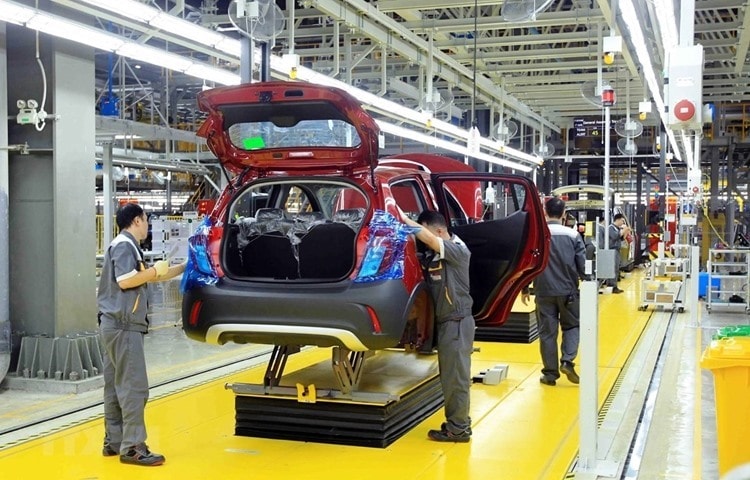Proposal to extend special consumption tax on domestic cars
The Ministry of Finance said it has submitted to the Government a plan to extend special consumption tax (SCT) on domestically produced and assembled cars.
Accordingly, the Ministry of Finance proposed a plan to extend the payment of special consumption tax on domestically manufactured and assembled automobiles according to the plan in Decree No. 32/2022/ND-CP.
Specifically: Extension of the tax payment deadline for the amount of special consumption tax payable arising from the tax period from June to September 2023 for domestically manufactured and assembled automobiles. The extension period is from the end date of the special consumption tax payment deadline according to the provisions of the law on tax administration.
The proposal to unify the extension period is November 20, 2023 to avoid accumulating payable amounts for businesses at the end of the year and avoid affecting the completion of budget revenue estimates in case businesses encounter financial difficulties.
With the above tax payment extension plan, the estimated monthly special consumption tax on domestically manufactured and assembled cars arising in the following months of 2023 is about VND 2,600 - 2,800 billion/month.
 |
The Ministry of Finance has proposed a plan to extend special consumption tax on domestically produced and assembled cars. Photo: Tuan Phong |
Accordingly, the total amount of special consumption tax on domestically manufactured and assembled cars extended for 4 tax periods as proposed is about 10,400 - 11,200 billion VND. Because the latest tax payment deadline is November 20, 2023, it will not affect the state budget revenue estimate for 2023.
Regarding the procedure for issuing the Decree, the Ministry of Finance said that the extension of payment of special consumption tax on domestically manufactured and assembled automobiles has been implemented in 2020, 2021, and 2022 according to the provisions of Decree No. 109/2020/ND-CP, Decree No. 104/2021/ND-CP, and Decree No. 32/2022/ND-CP.
In case the Prime Minister allows the development of a Decree to extend the deadline for 2023, the Ministry of Finance shall report to the Prime Minister for permission to develop a Decree to extend the deadline for paying special consumption tax on domestically manufactured and assembled automobiles in 2023 according to shortened procedures. At the same time, it is proposed to assign the Ministry of Industry and Trade to preside over and coordinate with relevant agencies to develop a response plan in case of being sued for violating international commitments.
The Ministry of Finance also informed that currently, there are a total of 12 automobile manufacturing and assembling enterprises nationwide. After going through the pandemic outbreak with many difficulties and challenges, thanks to the right support through the Government's policies, the domestic automobile industry has recovered its growth and sales in 2022 have exceeded 2019.
Regarding the actual consumption situation of domestically produced and assembled cars in recent months: Based on the declared data of domestic car manufacturing and assembling enterprises, the output and special consumption tax on domestically produced and assembled cars are gradually decreasing.
From October 2022, the declared output was 25,571 vehicles with the corresponding special consumption tax of VND 3,884 billion; by November 2022, the declared output was 23,658 vehicles with the corresponding special consumption tax of VND 3,412 billion;... by January 2023, the arising special consumption tax was VND 1,442 billion.
The Ministry of Finance believes that, in the face of the above difficulties and challenges, it is necessary to continue supporting domestic automobile manufacturing and assembly enterprises to recover and develop production and business as proposed by the People's Committees of Quang Nam and Ninh Binh provinces and associations and enterprises. Moreover, after the extension period, automobile manufacturing and assembly enterprises must pay the full amount of tax to the state budget.


